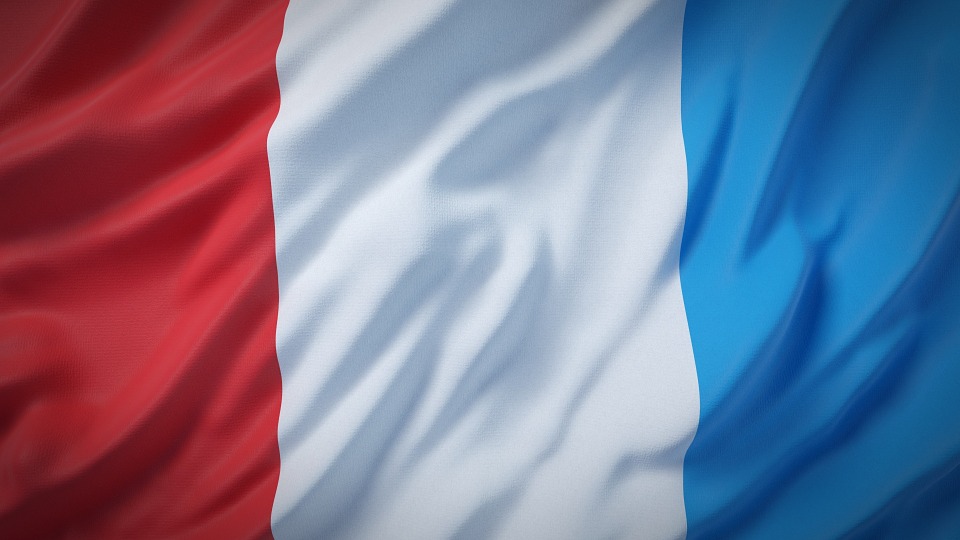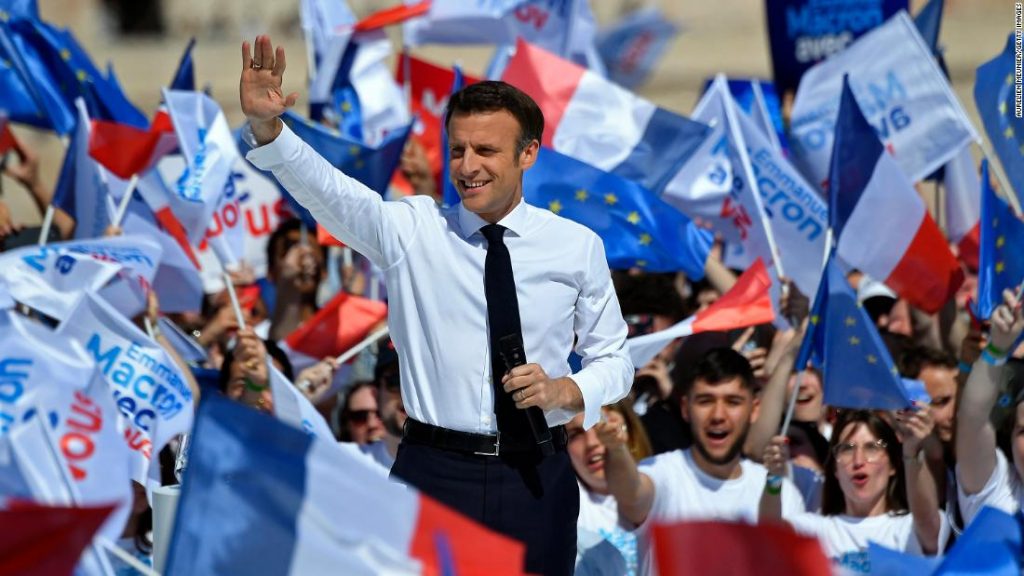Author: Bao Jeff
Macron has successfully been re-elected as the French president. How will he lead France to realize the modern transformation of development cooperation?
Total words1888About3minutes
On April 24, current French President Emmanuel Macron won the second round of presidential election voting, becoming the second French president to be successfully re-elected after Chirac. This article focuses on the overview of French development aid and Macron’s development aid reforms.
France is a major global donor
France is the fifth largest donor to the OECD DAC. In 2020, France provided US$14.1 billion in official development assistance, an increase of US$10.9% from the previous year. In 2020, France's official development assistance accounted for 0.53% in gross national income (GNI), and it is expected to achieve the target of 0.7% by 2025.
Most of France's ODA is provided bilaterally. In 2019, France provided US$9.7 billion in bilateral assistance, an increase of 5.2% compared with 2018, accounting for 66.4% of total official development assistance. France provides bilateral ODA mainly through the public sector. In 2019, France's US$480 million in bilateral aid was used to support civil society organizations (CSOs), accounting for less than 1% of total bilateral official development assistance. In addition, 3.1% in bilateral aid is non-core contributions provided through multilateral organizations.
In 2019, France provided US$5.2 billion in multilateral aid, a decrease of 11.9% compared with 2018. Among them, US$4.9 billion are core contributions provided to international agencies, accounting for 33.6% of total official development assistance; other funds are non-core contributions provided to international agencies and designated for specific countries, regions, themes or purposes. In 2019, France's multilateral aid mainly went to EU institutions and the United Nations system, with contributions accounting for 52.3% and 11.5% of France's total multilateral aid respectively.

Development cooperation agency setup
The top-level mechanisms of French development cooperation include the Development Council (DC), the Inter-Ministerial Committee for International Cooperation and Development (CICID), the European and Foreign Affairs Ministry (MEAE), the Ministry of Economy and Finance (MINEFI) and the French Development Agency (AFD). The Development Council, chaired by the president, convenes relevant ministers to formulate France's development cooperation strategy. The inter-ministerial committee, chaired by the Prime Minister, develops the overall framework for France’s development cooperation policy and coordination between the different agencies. The Ministry of Foreign Affairs for Europe and Foreign Affairs is responsible for strategic oversight of development cooperation. The Ministry of Economy and Finance is responsible for cooperation with international financial institutions, debt issues and reporting official development assistance data. The French Development Agency, under the leadership of the Ministry of Europe and Foreign Affairs and the Ministry of Economy and Finance, is responsible for the implementation of France’s 40% bilateral official development assistance. In recipient countries, French foreign aid is led by the ambassador to the recipient country and coordinates French development agencies on the ground.
The National Council for Development and International Solidarity (CNDSI) is chaired by the Ministers for Europe and Foreign Affairs. The Commission consults with various stakeholders, including NGOs, businesses, research institutions and universities, local governments, parliamentarians, and foreign experts, on the policy direction of French development cooperation.
Macron committed to aiding modernization reforms
In 2017, when Macron began his first presidential term, France’s foreign aid focused on Africa and Asia. Although the French government lists low-income countries as priority recipients of aid, most bilateral aid flows to low-middle-income and upper-middle-income countries in the form of loans. France’s development aid expenditure is also far from the OECD’s target of allocating 0.7% of gross national income to official development aid.
Macron’s vision for modernizing aid has spurred reform of France’s official development assistance. In 2018, Macron commissioned MP Hervé Berville to produce a report on how French development policy adapts to contemporary needs. Based on the report's recommendations, France passed a new development cooperation bill, the "Solidarity Development Law" in August 2021. The law sets out the strategic framework of France's development policy for the next five years and the funding required to implement it.

New bill reshapes France’s development cooperation strategy
The "Solidarity and Development Law" sets the eradication of poverty and the protection of global public goods as the focus of France's development cooperation policy, and stipulates that 0.7% of gross national income will be used for official development assistance by 2025. The main contents of the new bill include:
Achieve the goal of 0.7% by 2025.The "Solidarity and Development Law" promises to use 0.55% of France's gross national income for official development assistance by 2022, and strives to reach 0.7% by 2025. This is the first time that France has set a clear date for its official development assistance to reach the 0.7% target. According to the Solidarity and Development Law, France's official development assistance will increase from 12.4 billion euros (about 14.4 billion U.S. dollars) in 2020 to 16.4 billion euros (about 19 billion U.S. dollars) by 2025, an increase of more than 30%.
Increase grants and reduce loans.Addressing the previous failure to provide adequate support to low-income and priority countries. The Solidarity and Development Act proposes that grants should account for 70% of bilateral official development assistance in the next five years, and focus on low-income countries and key countries. These priority countries are expected to receive 25% of French state project aid by 2025, above the average of 14% from 2017 to 2019. This shift poses potential challenges to the French Development Agency’s existing business model and implementation capabilities.
Focus on the strategic priorities of foreign aid.The Solidarity and Development Act refocuses France’s three strategic priorities on official development assistance. One is to eliminate poverty, malnutrition and global inequality and promote education and health. The second is to promote human rights, rule of law and democracy in French-speaking countries. The third is to protect global public goods. The Solidarity and Development Act reaffirms that France's official development assistance will be used in Africa and the Mediterranean.
Reform France’s development cooperation governance mechanisms and increase accountability.The "Solidarity and Development Law" adjusts the decision-making mechanism of French development cooperation and forms a multi-level decision-making and implementation system in which the Development Committee is responsible for strategic decision-making, the inter-ministerial committee is responsible for overall coordination and aid distribution, and relevant ministries are responsible for implementation. The law also clarifies the relationship between the embassy and the French Development Agency in recipient countries, defining the leading and coordinating functions of the ambassador. In addition, the Solidarity and Development Act establishes an evaluation committee to review and evaluate official development assistance and its impact. The evaluation committee reports to parliament and aims to encourage French aid agencies to pay more attention to the impact of foreign aid on recipient countries.
Promote gender equality and social organization participation.The Solidarity and Development Act elevates the promotion of gender equality to a cross-cutting objective of French official development assistance. In addition, the law doubles the scale of aid provided through civil society organizations, providing greater scope for civil society organizations to participate in official development assistance.
All rights reserved, please indicate the source when citing.
References
https://focus2030.org/Modernisation-de-la-politique-francaise-de-developpement-ou-en-est-on
https://odi.org/en/insights/is-france-the-new-development-leader-on-the-european-block/
Past review
- Deciphering Germany's New International Development Policy
- Constricted Aid Budgets and Dwindling Support: UK NGOs' Struggle to Forge Ahead
- EU-AU Summit: Old Wine in New Bottles or a New Era of Development Cooperation?
- New Strategy Unveils a Digital Epoch in U.S. International Development
- New Trends of Global Donor Countries in 2021: Development Cooperation in the Era of Pandemic (Europe)

